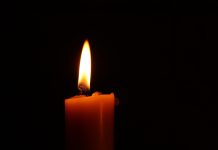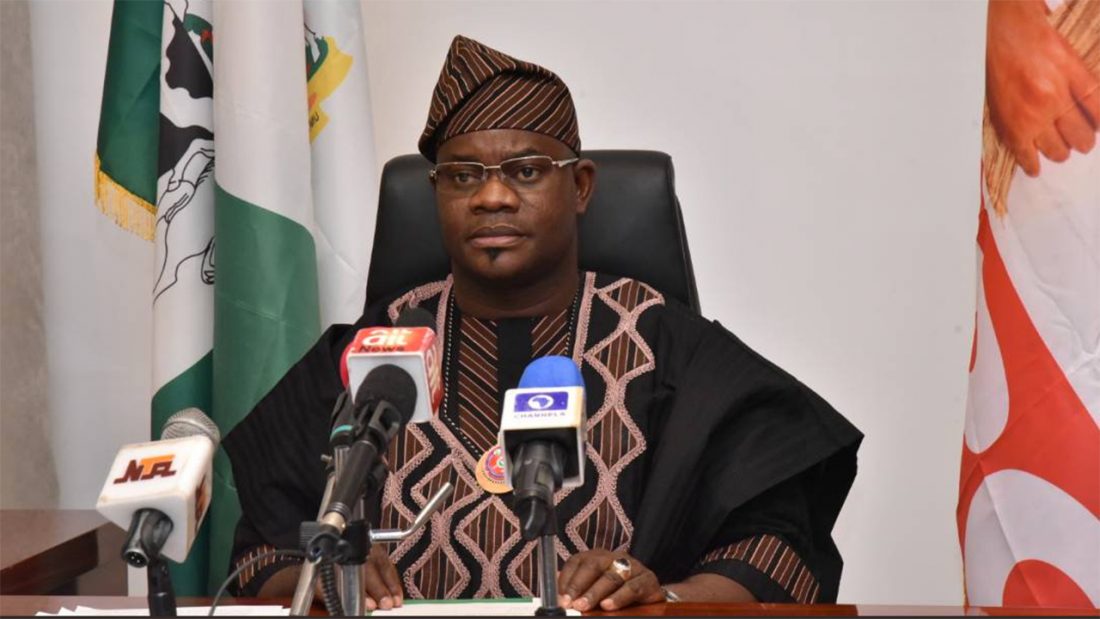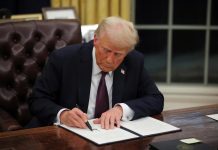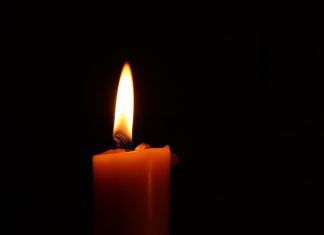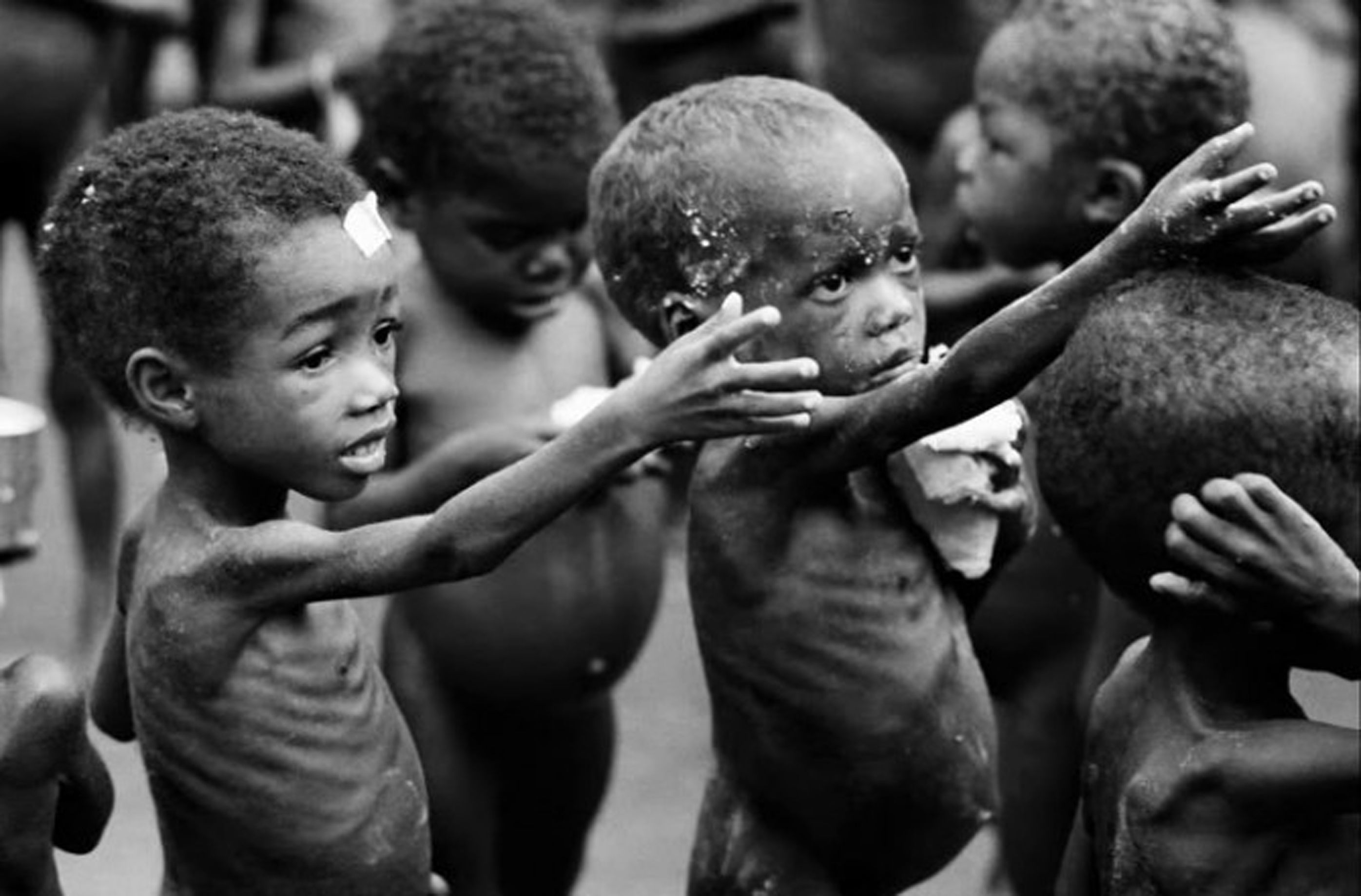
[dropcap]S[/dropcap]everal decades after the Nigerian civil war that lasted between 1967-1970, there were stories of how the Yakubu Gowon-led federal government then in Lagos, launched a full-scale invasion into Biafra, surrounding her with aerial bombardments that led to the death of over 3 million people. From stories of how children died as a result of the outbreak of disease epidemics to stories of how women, with their suckling babies strapped to their backs, travelled far distances to seek asylum and those of how men turned carnivores, feeding on their fellow men as a result of widespread hunger and starvation. There was the story of the naval blockade, how the Nigerian government starved the Biafran people into submission, with an estimated 3,000 to 5,000 people dying every day.
Fought barely seven years after the country gained independence from Britain, the war was triggered by the massacre of Igbos living in the northern part of the country. After the first and second coup, tension began to rise in the north and the embers of ethnic discrimination against the Igbos heightened. While the Federal military government felt it was unnecessary for the Eastern Region to break away, the Biafrans on the other side of the divide felt they could no longer relate smoothly with the Northan- dominated Federal government and saw secession as the only way to survive and avoid extinction.
The rebirth of Biafra agitations
It is 45 years after the war was won and lost just to keep the country together, yet the questions that led to the war have not been answered. With ethnic tension still rife and political instability at its peak, the South Eastern Region feel uncared for and their future threatened by the uncertainty in the Nigerian political climate. The Deputy President of the Senate, Ike Ekweremadu, at the public presentation of a book in Abuja remarked that the worst disadvantages suffered by the Igbos include those imposed by structural imbalances, such as fewer number of states and local governments, lesser revenue accruals, political representation, federal employments and political appointments.
Consequent upon perceived marginalization by the present administration is the rebirth of agitations by the Indigenous people of Biafra (IPOB) and championing the struggle is Nnamdi Kanu who is also the director of the pirate Radio Biafra. Ever since the resurgence of Biafran struggles, the media has been replete with violent utterances, attacks and irreverent verbiage characterized by hate and bigotry. It is either leaders of IPOB are casting aspersions on the Federal government and the north or the Hausas are firing salvos on Pro-Biafran demonstrators. As a guest speaker at the World Igbo Congress 2015, Nnamdi Kanu was heard soliciting for support to procure guns and bullets to fight the government in Nigeria, according to an International Guardian report. He also referred to President Buhari as a paedophile Almajiri and Nigeria as a zoo.
On the 6th of June, the Coalition of Northan Groups, (CNG) handed a three month quit notice to Igbos living in the North, a decision which the group said was in response to violent agitations by Biafran demonstrators. The notice has seen the gradual departure of some South Easterners who are living in the north. The leader of (CNG) Alhaji Yerima Shettima explained that the quit notice was a signal to Kanu and his group that Nigeria cannot be undermined by a single individual. He also described Kanu as a frustrated human being seeking political relevance, a report in the Daily Post revealed.
With increasing protests and hate speeches, the unity of Nigeria seems to be held at gunpoint.
Further threatening our national unity is the controversial deployment of military hardware to the five states in the South East region under the pretentious guise of operation python Dance 11- reportedly geared towards the provision of security in the zone. On the 12th of September, the Nigerian Military attacked the Afarachukwu country home of Nnamdi Kanu, the leader of the Indigenous people of Biafra where an unconfirmed number of IPOB members were killed and several others injured. The attack came barely a few days after the social media were awash with video clips and pictures which show the Nigerian military executing orders in the most horrendous way, flogging civilians and making them to lie down in ponds for hours.
The Nigerian military did not need to employ the use of brute force against a group of agitators whose protests have been relatively peaceful. The attendant arrogance and violation of human rights in the wake of operation python dance does not serve the Nigerian State well. In his report titled A million pythons cannot bite away the Biafra Question, Fisayo Soyombo of the International Centre for Investigative Journalism observed that the “deployment of soldiers to the South East has caused needless tension, resulting in the death of a hard-to-ascertain number of people, the assault on suspected IPOB members, the combing of buses by IPOB members in Abia for Hausas to harm, the Igbo-Hausa tension in the Jos and Port Harcourt”.
It is time to seek lasting solutions to the fears and agitations of different groups in the country as the consequences of another civil war will be devastating than the former, not only in Nigeria but the entire world. Rather than shout down at the agitators and wish them away with just a wave of the hand, the government must try to address the thorny issues that have created this monstrosity which continues to haunt our national unity. The government should as a matter of urgency, look at the recommendations of the national conference of 2014 which have in one way or the other proposed ways of improving our federalism and deepening our democracy.
What is best for us is a united Nigeria under a restructured Federal system of government that guarantees equity, fairness, justice and where the rule of law prevails- a nation where everyone is free to pursue their individual dreams.
Gideon Arinze is a concerned Nigerian citizen.
The opinions expressed in this article are solely those of the author.

